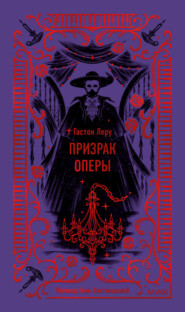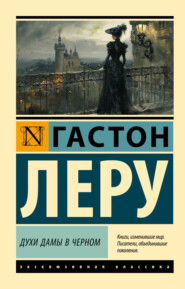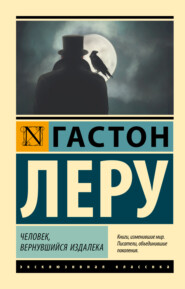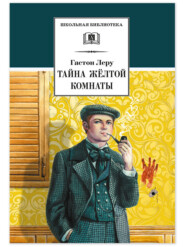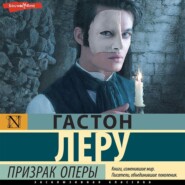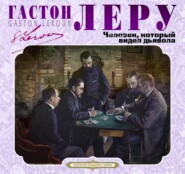По всем вопросам обращайтесь на: info@litportal.ru
(©) 2003-2025.
✖
The Bride of the Sun
Автор
Год написания книги
2018
Настройки чтения
Размер шрифта
Высота строк
Поля
“No fuss, you see,” babbled on Garcia. “Antique simplicity. Cato, and all that sort of thing.... Nothing like antiquity, sir, to make men.... The good padres taught us that, and I took the lesson to heart.” He laughed. “All that show is for outside… the crowds like it. You must amuse the crowd!… Did you see my review? Splendid, wasn’t it?… Magnificent soldiers.... And the rain., Did you see what I did? Effective, eh?”
Daring all this verbiage, Garcia was thinking hard, and watching the new-comers’ faces. He was far from being a fool. Were they, or were they not, ambassadors from Veintemilla? Would he accept a compromise, if they came to offer it? In a moment his mind was made up; he would refuse, and risk everything on the result of this rising, his large fortune and his life included.
At last the Marquis was able to speak.
“I have come to ask the assistance of the master of Peru.”
At these words the Dictator, who was washing the soap from his face, looked up in surprise over a towel. He knew that the Marquis was a personal friend of Veintemilla. Natividad looked away uneasily, for he was compromising himself horribly.
“The master of Peru,” repeated the Marquis, “whose motto is ‘Liberty for all.’ I want him to restore to me my two children, who have been stolen.”
“Stolen! What do you mean, señor? Those who have done this thing shall be punished. I swear it by my ancestor, Pedro de la Vega, who gave his life for the True Faith, and was killed by the infidels in the year of grace 1537 at the Battle of Xauxa, in which he received seventeen wounds while fighting at the side of the illustrious Christobal de la Torre!”
The Marquis had always said that Garcia was in no way descended from Pedro de la Vega, and Garcia knew it.
“Those same infidels have now carried off my daughter, Excellency.”
“The beautiful señorita! But what do you mean by infidels? What infidels?”
“She has been kidnaped from Callao by the Quichuas… as a sacrifice to their gods during the Interaymi.”
“Sacrifice!… Interaymi… but that cannot be, señor.”
“I am sure of what I say, Excellency, and she has certainly been carried off. Let me introduce señor Perez, the inspector superior of the police of Callao. Like myself, he is devoted to your cause. He will tell you the same thing. Speak, Natividad.”
Horrified at the form of the Marquis’ introduction, Natividad stammered a corroboration. If Garcia did not win now, all that was left for him to do was to cross the Bolivian frontier.
The change in Garcia’s manner was immediate. He did not want trouble with the Quichuas, his partisans and allies.
“But I can do nothing for you, señor. All this happened in Callao. Veintemilla is still master there, and you must go to him.”
“They are now in this very city, imprisoned in a house which is guarded by your own troops.”
“That is not possible. I should have known it. But if by some extraordinary fact this is so, you have not done wrong in coming to me.”
“I knew I would not appeal to you in vain. As long as I live, I shall not forget this service. I have friends in Lima, señor! And this gentleman also,” he pointed to Natividad. “The police of Callao is yours.... Only accompany us to the gates of the city, and set my children free, and my life and my fortune are yours.”
“I am afraid I cannot come myself, for I am expecting the British Consul. But I will send my Minister for War with you. You will find him just as useful.” Garcia turned and whistled for the dignitary in question, who seemed in no hurry to move. “Go and see what is happening,” he ordered, “and let me know.... I believe you are in error, gentlemen, but I will do what I can for you.”
Don Christobal and Natividad went out, followed by the Minister, whose enormous spurs made the hall and staircase echo. Garcia closed the door.
“I wonder what it all means,” he mused aloud, evidently much put out. “Ten to one, Oviedo Runtu is in it. If he really has carried off señorita de la Torre, the outlook for us at Lima is bad.”
The door opened, and an officer announced the British Consul. This official was a big tradesman of the town, who had secured the commissariat contracts to Garcia’s army by promising him the support of Great Britain.
Garcia began to speak of his soldiers, and the consul put in that the worth of an army resided more in the general who commanded it than in the men themselves. His compliment provoked a self-satisfied bow from Garcia, but he made the mistake of trying to improve it, and added:
“For, between you and me, Excellency, those troops of yours are not worth much, and if you had not been there to…”
“Not worth much! What the devil do you mean! Do you know what kind of fighting they have been doing in the mountains? Not worth much, indeed! Did you see a single laggard…”
“No, but the guard are all sound asleep now.”
“Asleep!” Garcia swore, and ran to the door.
III
Garcia opened the door, and looked down the staircase, where he both heard and saw his guards sleeping. Pale with anger, the Dictator woke them, and ordered the officer to muster his men on the landing.
“My soldiers never sleep!” he declared to the consul. “Look at them. Do they look as if they wanted sleep?… Come, my lads, a little exercise to keep you fit. Out of that window with you all!”
His outstretched arm pointed to the bedroom window, nearly five yards above the ground. The poor hussars looked at him, hesitated, and jumped. Remained only the officer.
“Well, and what are you waiting for, major? You should be with your men.”
Then, as the officer did not move, he seized him round the waist, and threw him out of the window. The watching ministers and the consul, anxious not to take the same route, laughed heartily at the jest, and went to look into the courtyard. Those of the soldiers who had landed more or less safely were picking up three comrades with broken legs. The officer was being carried off, his skull fractured.
Just as this interlude ended, the Minister for War returned, still followed by the Marquis and Natividad.
“Well?” asked Garcia, closing the window.
“The Red Ponchos,” replied the Minister, looking meaningly at his illustrious chief. “Oviedo Runtu quartered them there, and added a few soldiers to the guard. They leave to-morrow night for the Cuzco.”
“What else?” Garcia was nervously twisting his mustache.
“They know nothing of the young lady and the little boy.”
“Excellency,” burst in the Marquis, who could contain himself no longer, “you must have that house searched. I know they are in it. You cannot allow those scoundrels to go free! Your name would be tarnished for ever if you did such a thing! It would make you the accomplice of murderers!....On you depend the life of my son, the only heir of a great name which in the past has always fought for civilization, side by side with yours, and of my daughter, whom you once loved.”
The latter consideration might have had little effect on the Dictator, who did not believe in confusing love and politics, but the sentence before, appealing to his sentiments as the representative of “a great name” moved him powerfully. He turned bruskly to his Minister for War.
“But you must have seen something. I presume you searched the house?”
“If I forced that house, Excellency, every one of our Quichua soldiers would rise. Runtu has only to make a sign, and they cut all our throats. That house is sacred, for the Red Ponchos and the mammaconas are escorting the ‘sacred imprints from Cajamarca to the Cuzco for the Interaymi fêtes. It is impossible, Excellency.” One look from the Dictator drove all his ministers from the room. When the door had closed on the last one, he turned to the Marquis.
“If your children are in that house, señor, it is terrible… but I can do nothing for you.” Don Christobal staggered under the blow, and leaned against the wall.
“Listen, Garcia,” he said in a strangled voice, “if this horrible crime is allowed, I shall make you personally responsible for it before the civilized world.”
He reeled, almost on the point of fainting. Garcia ran to his side, and held him up, but Don Christobal seemed to regain his forces at once.
“Hands off, you general of murderers!” he shouted.
Garcia went white, while the Marquis walked toward the door, turning his back on the Dictator though he expected to be stabbed at any moment. But Garcia controlled himself, and his lisping voice checked Don Christobal in surprise.
“Do not go yet, señor. I can do nothing for you, but I can at all events give you some advice.”
Don Christobal turned, but ignored the hand which waved to a chair, and waited. He had already wasted too much time here.







